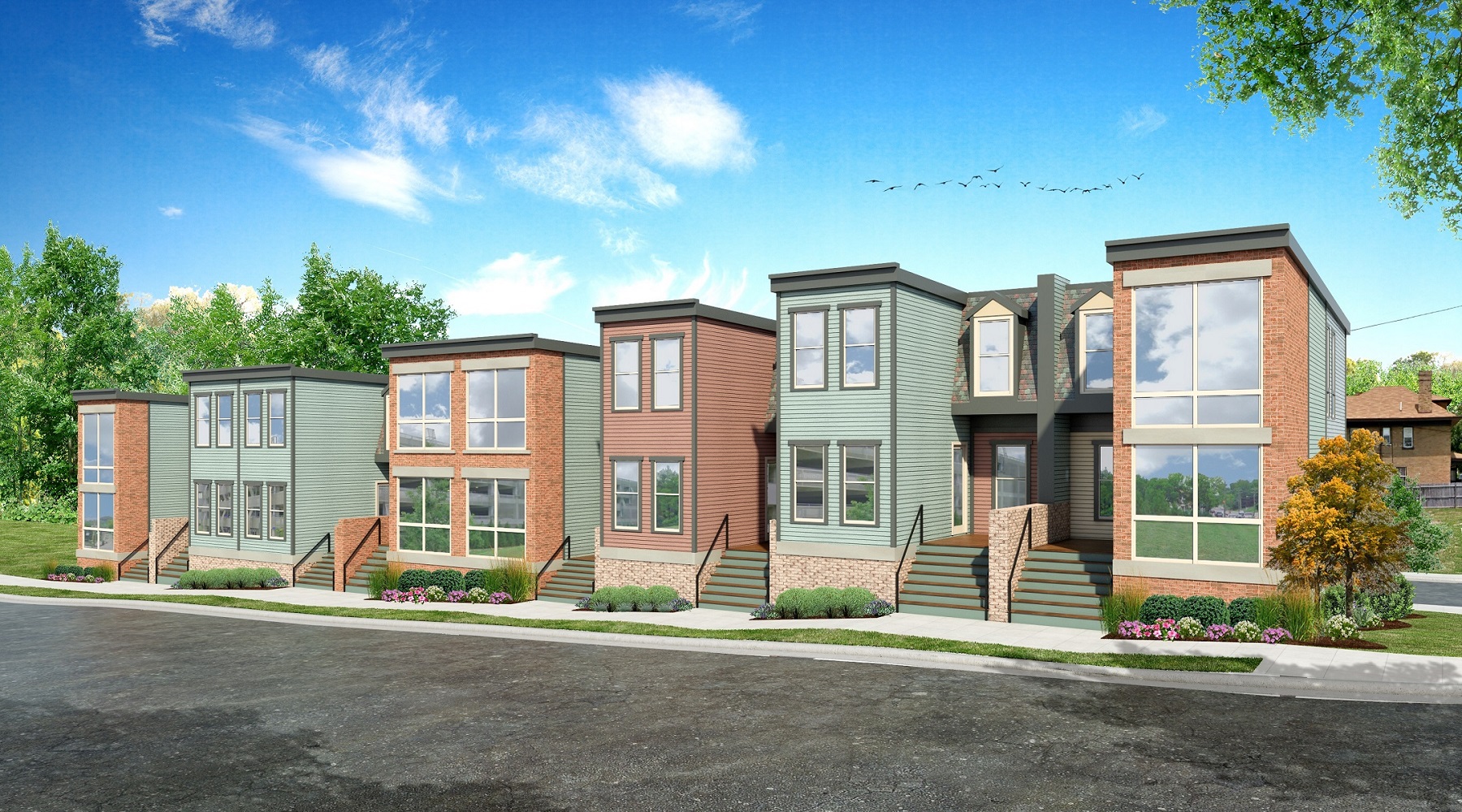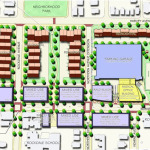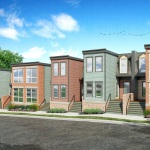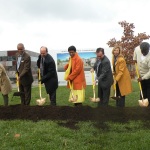Earlier this month community leaders and City officials gathered in Avondale to celebrate the groundbreaking for eight new market-rate townhomes in the long beleaguered Uptown neighborhood.
The Northern Townhomes project, named after the street on which it is located, is just the latest evidence of a startling transformation that has taken place along the Burnet Avenue corridor over recent years, which has included the construction new office mid-rises, street-level retail and renovation of historic buildings to accommodate new residences.
Much of this transformation has been spurred by the continued growth of Cincinnati Children’s Hospital Medical Center, which has added thousands of jobs since 2000. But that jobs growth, however, has not yet translated into an improved housing market in the impoverished neighborhood. Community leaders are hoping that Northern Townhomes will be the first of many more projects that will work toward improving just that.
“Any community developer knows that the key to smart growth is home ownership,” stated Ozie Davis, Executive Director at Avondale Comprehensive Development Corporation, in a prepared release.
Avondale currently has one of the lowest home ownership rates in the city at just 33%. According to the U.S. Census Bureau, the City of Cincinnati and State of Ohio, respectively, have home ownership rates of 40.5% and 68%.
The realization of this development has taken years, following a community-developed master plan for the area years ago. Correspondingly, the funding for the $2.4 million project also came from a diverse coalition of neighborhood stakeholders including the University of Cincinnati, UC Health, Cincinnati Children’s Hospital Medical Center, Cincinnati Zoo & Botanical Garden and TriHealth.
“The potential for the strong neighborhood revitalization like ours comes from good visioning, smart planning and patience, and this Northern Townhomes project proves that Avondale, Uptown Consortium and the Uptown institutional members have all three,” Davis emphasized.
Project officials say that each of the eight townhomes is approximately 1,400 square feet. Six are two-bedroom residences, while the remaining two have three bedrooms. Additionally, each home has a one-car garage and what the developers are calling tandem on-street parking.
As of now, the expected price point for each townhome is starting at $175,000, and may qualify for a 15-year LEED tax abatement should the developers successfully achieve LEED for Homes Silver certification.
If all goes according to plan, project construction is expected to be completed by fall 2015. After that project officials say that there is room for a second phase of another eight townhomes. The corner of Northern Avenue and Burnet Avenue, meanwhile, is being reserves for another commercial development.
“Avondale is key to the spirit of Uptown Cincinnati, and Avondale community leaders have been a great collaborator and convener as we have work together to revitalize the Burnet Avenue corridor,” concluded Beth Robinson, President and CEO of the Uptown Consortium. “Market rate housing is a fundamental anchor to a diverse residential neighborhood, and we are delighted to have this project be a significant milestone in the Burnet Avenue revitalization.”
Additional residential and mixed-use components remain to be realized as part of the Burnet Avenue corridor master plan, and no timeline has been identified for those elements as of yet.



